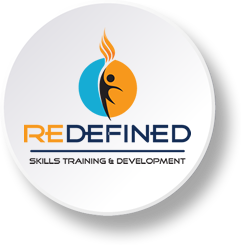INVEST IN YOUR
PROFESSIONAL GOALS TODAY!
Quick, Convenient & Affordable.

COURSE DURATION: 4 Days
OVERVIEW
117871: FACILITATE LEARNING USING A VARIETY OF GIVEN METHODOLOGIES
This unit standard will provide recognition for those who facilitate or intend to facilitate learning using a variety of given methodologies. Formal recognition will enhance their employability and provide a means to identify competent learning facilitators.
WHO SHOULD ATTEND
Managers and leaders who have teams or multiple working groups; Consultants, small business owners & team leaders; Professional Facilitators (including trainers and speakers) who want to strengthen their facilitation practice.
COURSE OVERVIEW
Course Outcomes
Upon completing this course, participants should be able to:
- Identify the main obstacles to effective facilitation
- Develop facilitation skills for a classroom environment
- Develop facilitation skills for adult learners
- Understand the nature of the process behind being able to effectively present information to an
audience - Understand a range of presentation tools and techniques
- Use these techniques to build a process that will ensure professional presentations are designed
and delivered on a consistent basis - Explain the benefits of having a professional approach to facilitation and presentations in the
organization irrespective of the target audience - Understand the function of communication through exploring its processes
- Match the type of communication with the appropriate method
- Understanding how to elicit input from the learners and create an interactive classroom
environment, where learners engage with the facilitator and each other - Develop awareness of how effective non-verbal messages are communicated
- Evaluate their own presentation skills by reviewing the video of their delivered presentation
- Apply a rigorous communication checklist in evaluating presentations
- Using effective visuals
COURSE CONTENT
Chapter 1 :Introduction to the Principles of Outcome Based Facilitation
The introductory chapter of this module outlines the distinctions between Training and Facilitation. Of particular note are the varying methodologies employed by each practice, which are discussed in detail. Additionally, this chapter also delves into the outcome-based approach to learning, with specific focus on the context of Facilitation. Finally, learners are provided with an in-depth exploration of the roles played by the National Qualification Framework, National Skills Act, and other relevant legislative aspects.
Chapter 2: The Cornerstone of Learning versus the Outcome Based Learning / Facilitation
The second chapter of this module explores the psychology and dynamics that underpin the adult learning environment. This aspect is particularly significant, as it distinguishes how
Facilitators should approach adult learning in contrast to other types of learning. The chapter concludes by offering valuable insights to Facilitators on effective training Facilitation, including motivation, reinforcement, retention, and transference. Additionally, the chapter highlights the dynamics of handling adult learners in adult learning, as this is a crucial component of the learning experience.
Chapter 3: Plan & Prepare for Facilitation
This chapter details how a Facilitator plans and prepares for Facilitation by designing Facilitation plans that speaks to outcome-based learning. Learning outcomes should meet learners and stakeholders needs and objectives. Resources and tools to be used in the Facilitation process are identified which must be relevant in achieving learning outcomes already stated in the Facilitation Plan. Above all, the chapter delves into discussing the importance of effective communication in the learning environment as absence of it can lead to ‘no learning ‘ at all. Facilitators are further equipped with the skills and practical strategies for creating enabling environments for an outcome-based intervention.
Chapter 4: Facilitating learning through use of different methodologies
The fourth chapter of this module provides a comprehensive overview of various Facilitation techniques that are effective in outcome-based education. Facilitators are equipped with an inclusive set of skills that can be employed to promote learner interaction through a variety of Facilitation approaches and methodologies. Furthermore, this chapter delves into the importance of Facilitator presentation in relation to the success of the Facilitation process. The focal point of this chapter is on Facilitation methodologies, approaches, and strategies that must be aligned with outcome-based education principles.
Chapter 5: Evaluating Learning Facilitation
The facilitation of learning is a collaborative process that requires ongoing feedback. The final chapter of our module on Facilitation provides a detailed overview of how facilitation is evaluated. This includes gathering constructive feedback from learners and other stakeholders against predetermined criteria. By analysing this feedback, Facilitators, learners, and other relevant stakeholders can identify the strengths and weaknesses of planning, preparation, execution, and facilitation interventions. Ultimately, this feedback allows for continuous improvement and refinement of the Facilitation process to ensure optimal learning outcomes.


